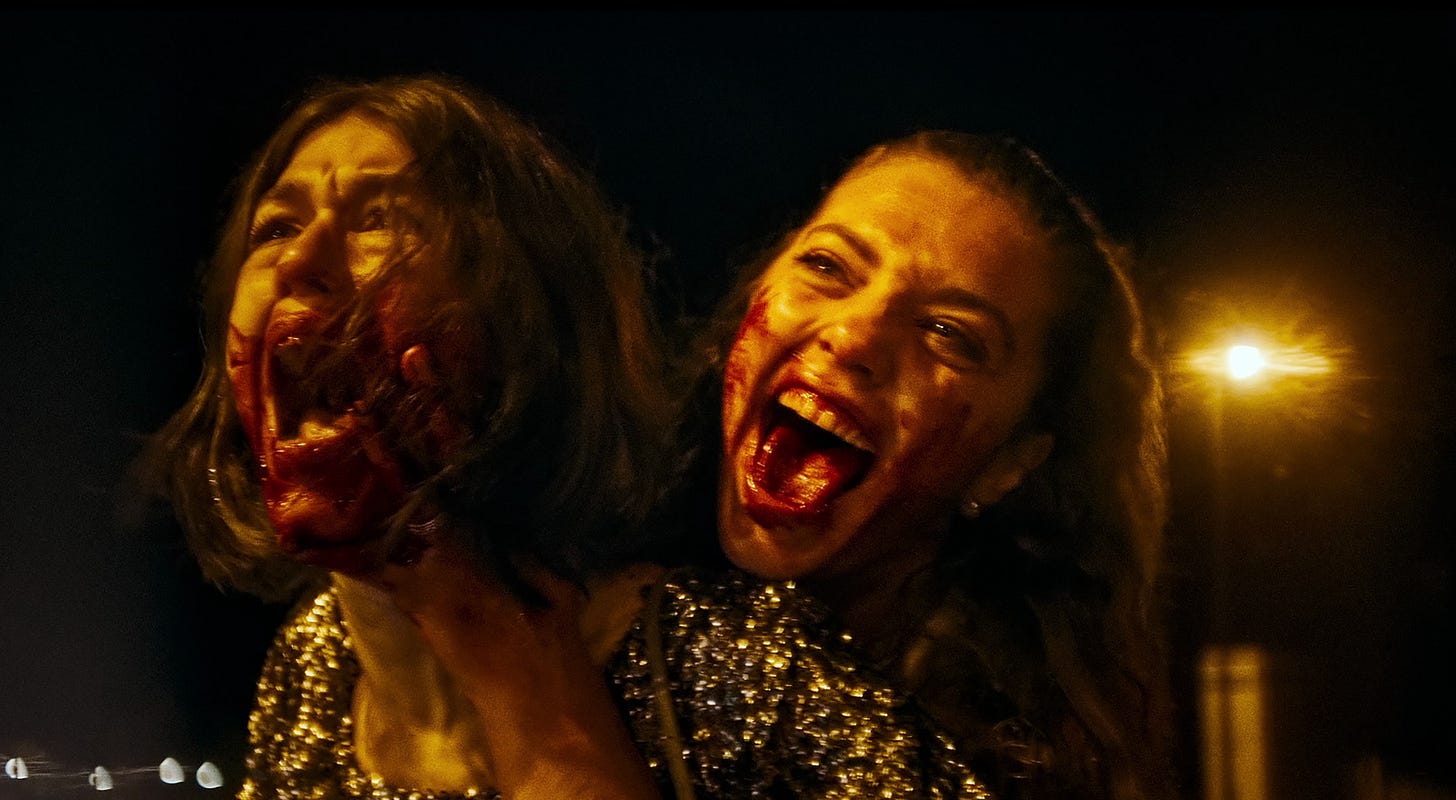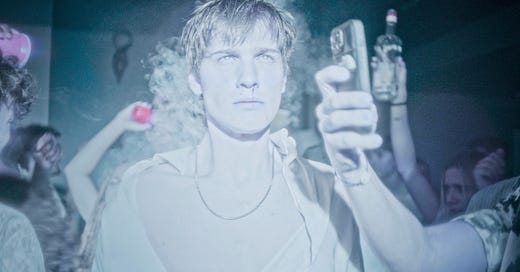Midway through the new French film, MadS, the teen protagonist (in that moment, more on that later) Romain (Milton Riche) wanders through a party being thrown by one of his peers. A little bit earlier, he’d been infected by a strange woman who leapt uninvited into his convertible, and he’s now starting to feel the effects. (Handy hint, never offer a ride to a person who’s waving around a recorder in which a dispassionate voice is talking about a recently contaminated test subject.) Romain wears a disassociated look as he winds his way through partyers drinking, dancing, imbibing controlled substances – he looks like an alien dropped down into a strange, raucous, and frankly terrifying species. Pretty soon, he won’t be the only one terrified.
I’m left wondering if writer/director David Moreau isn’t in some way identifying with Romain at that moment. MadS (that’s the typography, I’m just reproducing it) is set in the ecology of the young, entitled inhabitants of what appears to be a fairly well-off suburb. There isn’t an adult in sight – save for the hazmat-suited, heavily-armed ones that will show up later – and Moreau’s dim opinion of the maelstrom of teen hedonism is plastered all over the place. As the contagion takes hold, and these shallow (and not-especially bright) partyers succumb to fits, confusion, and finally violence, you get the feeling the director is telling us this is only what they deserve.

MadS indulges in a particular brand of nastiness often encountered in French horror. Moreau doesn’t go overboard, though, and the resulting impression feels more like a sting than a hammer blow. There were more than a few moments when I was straight-up laughing as the situation grew increasingly hellish – there’s a delicious irony to unleashing the apocalypse upon a generation so coddled that they can do little but cry for mommy as they’re bleeding out of their orifices.
Moreau mounts his tale of bloody contagion as if it was a single take – his wander through the party actually forms a small portion of the film, the rest of it is devoted to following Romain and two other, subsequent victims (one of whom starts channeling her inner Harley Quinn) as they attack passersby, indiscriminately spread the contagion, and desperately try to figure out what’s happening to them. The director’s swirling, mobile camera gives the nightmare a propulsive energy, but it’s also a trick that can wear over time. While the problem isn’t too serious here, there was a point where I wished the finale – in which a rain of fire descends upon the community while throngs of anonymous armed forces engage in gunning down anyone who has so much as looked at one of the infected – had arrived sooner.
It didn’t really take me out of the enjoyment of MadS, though. It's a viciously clever take on the end of the world, as seen through the eyes of those who can barely comprehend their own demise.




